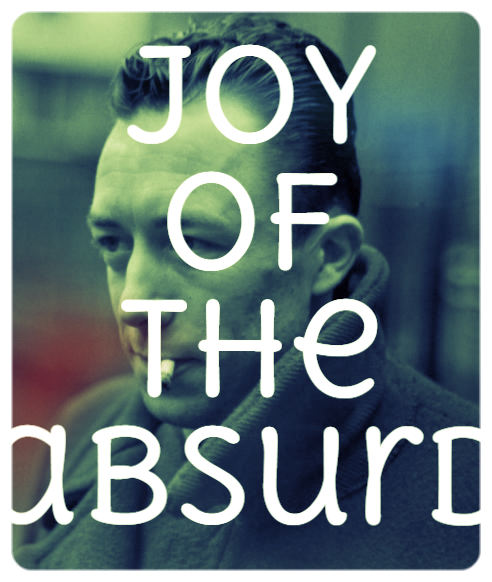Camus: Joy Of The Absurd
Albert Camus relates to us the tale of Sisyphus: he was cursed by the gods to forever push a rock to the top of a hill, only to have it roll back down to the bottom whereupon he descends and is forced to endure this trial again and again for the rest of eternity. It's easy for us to say that Sisyphus is a tragic figure. For sure, it's a cautionary tale about overreaching or "defying the gods" or whatever, but there's something interesting about someone whose whole existence is defined only by endless hopelessness and inevitability. In this world exists only Sisyphus, the rock, the hill, the struggle, and the descent - and everything repeats. It sounds bleak, pointless, and likely a worse punishment than even death - but Camus would argue that one has to imagine Sisyphus is happy.
Why? Why imagine this surely droll figure whose psyche must have been broken a million times over as a joyful being? Because, in many ways, our lives emulate the trials of Sisyphus. Fighting against death is a battle we're going to lose, as is fighting against life. It is a series of struggles, failures, and victories just as rolling the boulder up the hill must be. Camus is most interested in the moment between the struggles, when Sisyphus is watching the boulder roll down the hill and reach the bottom. In that moment, Sisyphus must feel content. He's gotten through his challenge, conquered the hill as he always does, and knows that - even though he has to do it all over again - he's still done what he was supposed to. He's fulfilled his goal. In other words, he's content.
Life is inherently absurd, Camus argues. There is no inherent purpose to it. Everyone must find their own purpose, their own reason for being. Camus acknowledges suicide but doesn't advocate for it. There is a better way, he says, and it need not involve the taking of one's own life. Instead, be like Sisyphus. His trial is absurd; it is meaningful only if Sisyphus can attribute meaning to it. If he convinces himself that the rock is his, that the hill is his, and the universe is his, then he controls his own fate. Nothing within resides except that which gives Sisyphus purpose. One has to imagine the world within this same context and apply it practically to one's own life. As Sisyphus descends down the mountain, so too must we willingly and happily continue to pursue our own burdens. They are what give us our purpose, our understanding, our wisdom, and our meaning in this futile and absurd reality. In doing so, we can find happiness.
I suppose we should all be so lucky to have lives with goals that simple.
I'll leave you with a quote from Camus:
"There is no sun without shadow, and it is essential to know the night. The absurd man says yes and his effort will henceforth be unceasing. If there is a personal fate, there is no higher destiny, or at least there is but one which he concludes is inevitable and despicable. For the rest, he knows himself to be the master of his days. At that subtle moment when man glances backward over his life, Sisyphus returning toward his rock, in that slight pivoting he contemplates that series of unrelated actions which becomes his fate, created by him, combined under his memory's eye and soon sealed by his death. Thus, convinced of the wholly human origin of all that is human, a blind man eager to see who knows that the night has no end, he is still on the go. The rock is still rolling." (Camus, The Myth of Sisyphus)



Comments
Post a Comment